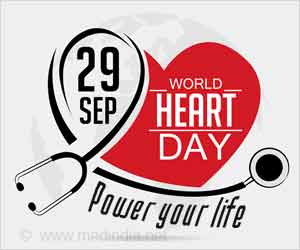Understanding the hidden triggers of double cardiac arrest and safeguarding the young from prevalent cardiac arrests
- At 33, fitness influencer Larissa Borges tragically succumbed to a double cardiac arrest
- The concept of double cardiac arrest, involving two simultaneous episodes, highlights the urgency of medical attention during such conditions
- Rising cases of cardiac arrest in young people underscore the importance of understanding its causes for prevention and timely intervention
Sudden Cardiac Arrest in a Young Population: Not So Unpredictable
Go to source).
What is Double Cardiac Arrest
Double cardiac arrest refers to the occurrence of two simultaneous cardiac arrests in a single individual. The episodes of arrest often occur within a short span of time. This is a rare and life-threatening event that requires immediate medical attention.Rise of Cardiac Arrest in Young People
Cardiac arrest, a sudden and often unexpected disruption of the heart's rhythm, can strike people of any age, including the young. While it's often associated with older adults, understanding the causes of cardiac arrest in young individuals is crucial for prevention, awareness, and timely intervention (2✔ ✔Trusted SourceUnexpected High Prevalence of Cardiovascular Disease Risk Factors and Psychiatric Disease Among Young People With Sudden Cardiac Arrest
Go to source).
Underlying Inherited Heart Conditions
Genetics play a role in determining an individual's susceptibility to cardiac arrest. If there's a family history of sudden cardiac death or inherited heart conditions, genetic testing and counseling can provide valuable insights into potential risks.
Conditions like hypertrophic cardiomyopathy, long QT syndrome, and arrhythmogenic right ventricular dysplasia can disrupt the heart's electrical system and trigger a sudden cardiac arrest. Congenital heart defects or anomalies in the heart's structure can disrupt blood flow and increase the risk of life-threatening arrhythmias.
Commotio Cordis: A Sports-Related Danger
Engaging in sports can be beneficial for overall health, but it also comes with a potential risk. Commotio cordis occurs when a sudden blow to the chest, often from a baseball or hockey puck, disrupts the heart's electrical activity. This can lead to cardiac arrest, emphasizing the need for protective gear and awareness.
Trauma, such as severe blows to the chest during accidents, can cause immediate disruption to the heart's rhythm, resulting in cardiac arrest. Quick response and prompt medical attention are vital in such cases.
Substance Abuse Among Youngsters
Substance abuse among today’s youth has become an impending threat. It poses a grave health risk, leading to not only immediate consequences like impaired judgment but also long-term health issues, including addiction and mental health disorders. In the case of Larissa Borges also the investigations are suspective of a potential narcotic abuse.
Substance abuse, including recreational drugs and excessive stimulant use, can trigger abnormal heart rhythms and potentially lead to cardiac arrest, even among the young and seemingly healthy individuals.
Lifestyle, Stress and Psychological Factors
Unhealthy lifestyle habits, such as poor diet, lack of exercise, and smoking, can increase the risk of cardiac arrest in young people over time. Addressing these factors early can significantly reduce the risk.
Chronic stress, anxiety, and other psychological factors can impact heart health and increase the risk of arrhythmias that may lead to cardiac arrest. Stress management and mental health support are essential components of prevention.
Electrolyte imbalances, particularly low potassium and magnesium levels, can disrupt the heart's electrical signals. Diets lacking in essential nutrients or medical conditions that affect nutrient absorption can contribute to such imbalances.
In conclusion, cardiac arrest is not solely confined to older individuals; it can affect young people too. Recognizing the diverse range of causes, from inherited conditions to lifestyle factors, is crucial for preventing such sudden and often tragic events. Timely medical assessments, genetic testing, maintaining a healthy lifestyle, and promoting awareness can collectively work to mitigate the risks associated with cardiac arrest in the young population.
References:
- Sudden Cardiac Arrest in a Young Population: Not So Unpredictable - (https://www.ncbi.nlm.nih.gov/pmc/articles/PMC6497362/)
- Unexpected High Prevalence of Cardiovascular Disease Risk Factors and Psychiatric Disease Among Young People With Sudden Cardiac Arrest - (https://pubmed.ncbi.nlm.nih.gov/30661423/)
Source-Medindia














